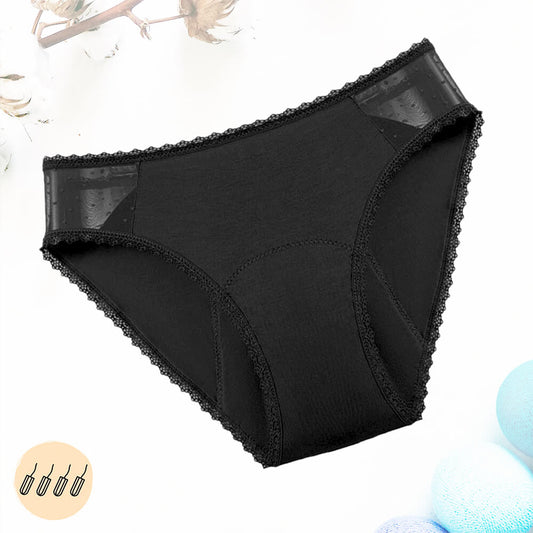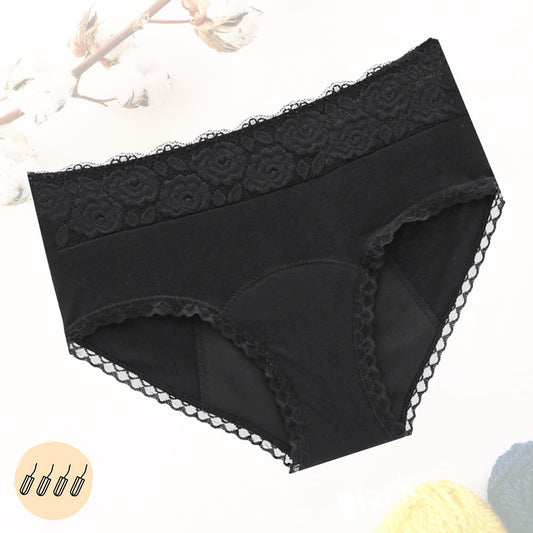
Period is an important stage in the female cycle and for many women it represents a hormonal upheaval which can cause unpleasant symptoms such as cramping or bloating. Hormonal changes also lead to changes in appetite. Fortunately, certain foods can help relieve these discomforts and improve well-being.
Let's find out together which foods to eat and which to avoid during your period.
The Benefits of Antioxidant-Rich Foods for Periods
Foods rich in antioxidants are important because they can help reduce inflammation and oxidative stress that are often associated with menstruation symptoms. Antioxidants also protect our cells from damage caused by free radicals. They can therefore be of great help during menstruation.
Some of the best antioxidant-rich foods are colorful fruits and vegetables, including berries, watermelon, oranges, and peppers. Antioxidants are also found in herbal products, nuts, green tea and cocoa.
The benefits of foods rich in vitamins and minerals for menstruation
Eating foods rich in vitamins and minerals is essential during menstruation. Vitamins B, C, and E are particularly helpful, as they can help relieve the anxiety and stress that often accompany menstruation. Vitamin C is also very useful in strengthening the immune system which is weakened during this period.
Vitamins and minerals such as iron, calcium, magnesium, vitamin D and vitamin B12 are also particularly important during menstruation.
- Le fer is essential for the production of red blood cells, which carry oxygen in the blood. Menstrual bleeding can lead to loss of iron, so it is important to consume enough of this element to avoid anemia.
- Le calcium is important for healthy bones and teeth, but it also plays a role in muscle contraction and blood clotting.
- Le magnesium is necessary for the production of energy, the regulation of blood pressure and the regulation of body temperature. It is also important for healthy bones, muscles and nerves.
- La vitamin D is important for healthy bones and teeth, but it also plays a role in regulating calcium and phosphorus levels.
- La vitamin B12 is important for the formation of red blood cells and the production of DNA.
Some of the foods richest in vitamins and minerals for menstruation include:
| Food | minerals | Vitamins |
|---|---|---|
| Green vegetables (spinach, cabbage, broccoli) | Iron | Vitamin K, folate |
| Fruits (bananas, avocados, figs) | Potassium | Vitamin B6 |
| Nuts (almonds, cashews, pecans) | Magnesium | Essential fatty acids |
| Whole grain products (bread, rice, quinoa) | Iron | Vitamin B |
| Oily fish (salmon, tuna, sardines) | Omega-3 | Vitamin D |
| Red meats (beef, pork, lamb) | Iron | Vitamin B12 |
| Dairy products (milk, cheese, yogurt) | Calcium | Vitamin D |
| Eggs | Iron | Vitamin B12 |
| Legumes (lentils, chickpeas, beans) | Iron | Proteins |
| Red fruits (strawberries, cherries, raspberries) | Fibre, antioxidants | Vitamin C |
| Root vegetables (carrots, parsnips, beets) | Potassium | Vitamin A |
| Cereals (oats, wheat, barley) | Magnesium | Fibres |
The Menstruation Benefits of Foods Rich in Omega-3 Fatty Acids

Omega-3s are polyunsaturated fatty acids that play an important role in heart health, blood pressure regulation, and inflammation regulation. Omega-3 fatty acids have also been linked to the regulation of hormones, including reproductive hormones.
Studies show that consuming adequate omega-3s can help reduce the symptoms of dysmenorrhea (menstrual pain) and improve overall quality of life during menstruation.
Foods high in omega-3 fatty acids are also beneficial for menstruation because they can help reduce inflammation and pain. Additionally, they can also decrease levels of cortisol, the stress hormone that can build up during this time.
Finally, omega-3s can also promote the production of serotonin, a mood-related hormone.
Here are some of the best omega-3 rich foods:
| Food | Omega-3 fatty acids |
|---|---|
| Oily fish (salmon, tuna, mackerel, sardines) | EPA, DHA |
| Nuts (flax, chia, cashews, pistachios, walnuts, almonds, hazelnuts) | ALA |
| Seeds (flax, chia) | ALA |
| Huile de poisson | EPA, DHA |
| Vegetable oils (linseed oil, canola oil, soybean oil, rapeseed oil) | ALA |
| Oatmeal | ALA |
| Tofu | ALA |
| Oyster | EPA, DHA |
A good source of energy with complex carbohydrates
Complex carbohydrates are considered a good source of energy because they are digested more slowly than simple carbohydrates, which helps maintain stable blood glucose levels. Complex carbohydrates are mainly found in foods such as vegetables, fruits, legumes, whole grains and whole grain products.
These foods also provide fiber, vitamins and minerals that are important for health and menstruation. Complex carbohydrates are an ideal source of energy for people looking to maintain a healthy weight because they help control cravings and reduce the risk of overeating.
Here are some good examples of foods for menstruation:
| Food | Complex carbohydrates |
|---|---|
| Vegetables (potatoes, carrots, zucchini, sweet potatoes) | Starch |
| Fruits (apples, pears, oranges, bananas) | Fibres |
| Legumes (lentils, chickpeas, beans) | Starch and fiber |
| Whole grains (oats, wheat, brown rice, quinoa) | Starch and fiber |
| Whole grain products (wholemeal bread, wholemeal pasta, brown rice) | Starch and fiber |
What foods should you avoid during your period?
Although certain foods can help relieve some symptoms, there are foods that can actually make these symptoms worse. menstrual disorders, it is therefore recommended to avoid them during this period:
- Spicy and fatty foods can cause bloating and abdominal pain.
- Salty foods can cause fluid retention and bloating.
- Alcoholic beverages can increase menstrual bleeding and make cramps worse.
- Sugary foods can cause mood swings and food cravings.
- Dairy products can cause bloating and constipation.
- Foods high in caffeine can cause insomnia and anxiety.
- Processed foods and refined foods can cause mood swings and food cravings.
Here are some foods to avoid during your period:
| Foods to avoid | Examples of products | Associated symptoms |
|---|---|---|
| Spicy and fatty foods | Curry, stews, fast food | Bloating, abdominal pain |
| salty foods | Chips, crackers, olives, smoked salmon | Water retention, bloating |
| Alcoholic beverages | Wines, beers, spirits | Increased bleeding, cramps |
| Sweet foods | Ice cream, cakes, sweets | Mood swings, food cravings |
| Dairy products | Milk, cream, cheese | Bloating, constipation |
| Caffeine-rich foods | Coffee, tea, energy drinks | Insomnia, anxiety |
| Processed and Refined Foods | Prepackaged foods, fast food type foods | Mood swings, food cravings |
| Aliments riches and sodium | Pouch soups, stock cube, charcuterie, condiments | Water retention, hypertension |
| Saturated and trans fats | Butter, cooking fat, margarine | Risk of heart disease |
| Simple carbohydrates | Sugar, jams, sweets, sugary drinks | Fluctuations in insulin, food cravings, weight gain, risk of type 2 diabetes |
| Red meats | Steak, sausage, bacon | Risk of heart disease |
| Chocolat | Dark chocolate, milk chocolate, sweet chocolate | mood swings |
| Soft drinks | Soft drinks, energy drinks | Water retention, bloating |
| Candies | Candies, gummies, sweets | Mood swings, food cravings |
| Artificial sweeteners | Synthetic sweeteners, substitute sugars | Negative health effects not established |
These foods can be eaten in moderate amounts throughout the year, but it is recommended to limit them during menstruation to minimize unpleasant symptoms.
Prioritize a healthy diet during menstruation
During menstruation, it is important to eat well in order to prevent discomfort and improve well-being. Foods rich in antioxidants, vitamins and minerals, and omega-3 fatty acids can help relieve period symptoms, while complex carbohydrates can provide energy. It is also advisable to avoid certain foods that may aggravate the discomfort.




